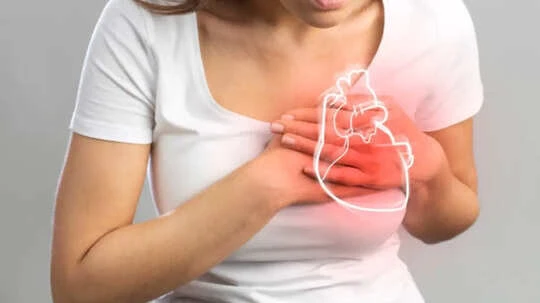Doctors say most heart conditions end up in emergencies only because their early signs and symptoms are mostly ignored. And so, it is important to recognise any situation you are facing which you must discuss with your doctors – especially when it comes to your heart.
While many do recognise the typical warning signs of a heart attack – in women, they may be different – and frequently go undetected.
According to Dr Punam Krishan, an NHS cardiologist, “We just don’t talk about it enough.”
Dr Krishan said heart disease accounts for more than 32 per cent of deaths across the world. “Most of us have the same picture in our minds when it comes to a heart attack – a man clutching the centre of his chest with pain going down the arm, and that’s it – and that’s not actually it.” She continued, “The reality actually is that women often don’t get those classic symptoms, and that is one of the reasons why heart attacks in women are more likely to be missed.”
What are the signs of a heart attack in women?
Dr Punam says rather than feeling severe pain in their chest, women experience minor chest pain but a lot of pressure spreading to the arms, back, neck, and jaw. She also stressed the importance of checking the sudden onset of extreme tiredness or exhaustion, along with breathlessness, nausea or vomiting, and extreme pain in the jaw, which can be the symptoms of a heart attack.
Experts believe women ignore classic symptoms of a heart issue “way too many times”. Dr Punam urges women to ensure they do not minimise their symptoms – and emphasises that it’s better to listen to your body than ignore warning signs until it’s too late. “When it comes to heart attacks, timing saves lives,” she further stated.
Why are symptoms in women different and more dangerous?
According to experts, women are less likely to survive a heart attack than men. This may be because the symptoms differ between the sexes, and so they are more likely to have a “silent” heart attack or display unusual symptoms.
Female biology also creates unique risk factors for heart attack, like diseases that increase risk, such as polycystic ovary syndrome or PCOS, which are not present in male biology. Doctors say the risk of heart attack spikes in women due to falling estrogen levels after menopause. A few postmenopausal heart attack symptoms include:
- Pain or discomfort in the arms, back, neck, jaw, or stomach
- Rapid or irregular heartbeat
- Severe chest pain
- Sweating without activity
Is it a heart attack?
A heart attack would occur when there is a lack of blood supply to the heart. A few symptoms include chest pain or tightness, pain that spreads to your arms or neck, a feeling of nausea or vomiting, sweaty or clammy skin, heartburn or indigestion, breathlessness, and coughing or wheezing.
Immediately call the emergency services if a person stops breathing, and perform manual chest compressions till help arrives.
